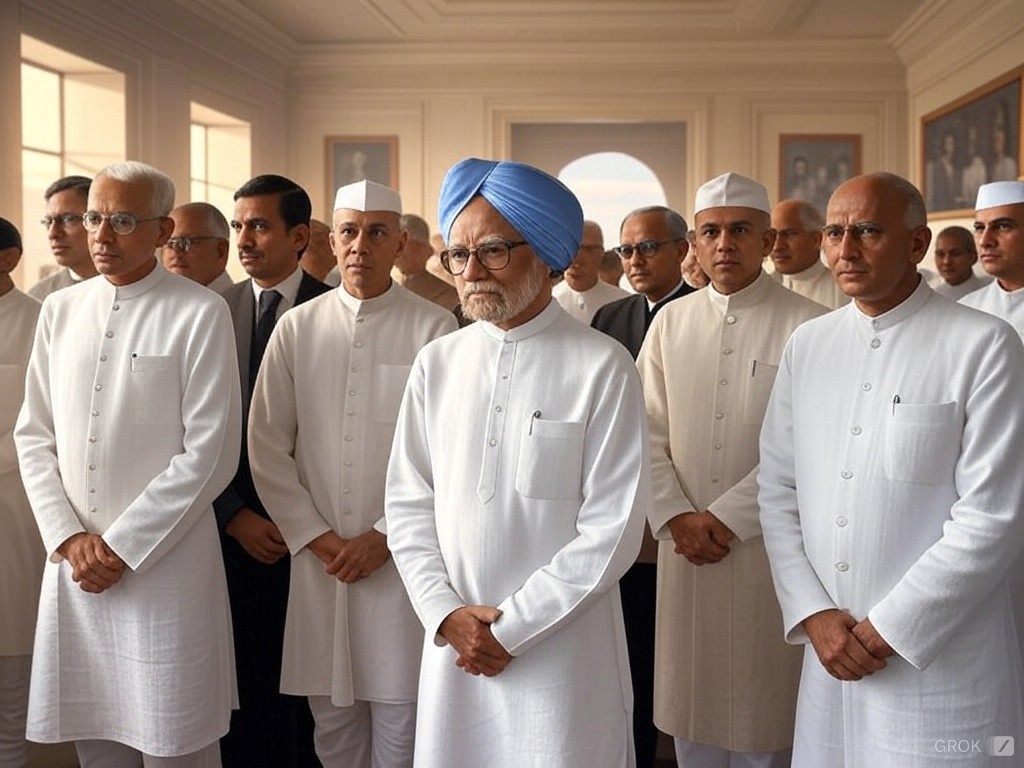On December 26, 2024, India lost one of its most influential figures, Dr. Manmohan Singh, who passed away at the age of 92 in New Delhi. Known for his pivotal role in steering India through an era of economic liberalization, Singh's tenure as Prime Minister from 2004 to 2014 left an indelible mark on the country's economic landscape. His journey from an academic to a key political figure encapsulates a narrative of dedication, intellect, and humble leadership.
Early Life and Academic Brilliance
Born on September 26, 1932, in the village of Gah in Punjab (now in Pakistan), Manmohan Singh's early life was marked by the upheaval of the partition of India in 1947, which led his family to migrate to India. Despite these challenging beginnings, Singh excelled academically, securing a Bachelor's and Master's degree in Economics from Panjab University. His thirst for knowledge took him to Cambridge University for further studies and then to Oxford, where he earned a D.Phil in Economics in 1962. This academic prowess would later serve as the foundation for his economic policies.
A Career in Public Service
Singh's career began in academia, teaching at both Panjab University and the Delhi School of Economics. His transition into public service commenced in 1971 when he joined the government as an Economic Advisor in the Ministry of Commerce. His roles expanded over the years, serving as Chief Economic Advisor, Secretary in the Finance Ministry, Governor of the Reserve Bank of India, and Deputy Chairman of the Planning Commission, among others. Each position honed his understanding of India's economic needs, preparing him for the monumental task that lay ahead.
The 1991 Economic Reforms
Arguably, Singh's most significant contribution came in 1991 when, as Finance Minister under Prime Minister P.V. Narasimha Rao, he introduced sweeping economic reforms. Facing an economic crisis with dangerously low foreign exchange reserves, Singh deregulated the economy, dismantled the License Raj, and opened India to foreign investment. His famous budget speech, quoting Victor Hugo, "No power on earth can stop an idea whose time has come," heralded a new era of economic policy in India. This liberalization not only rescued India from potential bankruptcy but also set the stage for an economic boom in the subsequent decades.
Prime Ministership and Legacy
In 2004, after the Congress-led United Progressive Alliance (UPA) won the elections, Singh became Prime Minister, an office he held until 2014. His tenure was marked by sustained economic growth, with India becoming one of the fastest-growing economies globally. Key initiatives included the Mahatma Gandhi National Rural Employment Guarantee Act (MGNREGA), which aimed at reducing rural poverty by providing employment guarantees, and the Indo-US Civil Nuclear Agreement, which significantly altered India’s international standing in nuclear technology.
However, Singh's time as Prime Minister was also shadowed by corruption scandals like the 2G spectrum case and coal block allocations, which dented his administration's reputation. Despite these controversies, his calm demeanor, integrity, and focus on inclusive growth were acknowledged even by his political adversaries.
Personal Traits and Public Perception
Manmohan Singh was often described as a man of humility and integrity. His personal life was marked by simplicity; he was known to drive a modest car and live a frugal lifestyle. Critics and supporters alike noted his soft-spoken nature, which sometimes led to perceptions of weakness, yet his commitment to democratic processes and his intellectual contributions to economic policy were never in doubt.
End of an Era
Singh's retirement from the Rajya Sabha in 2024 marked the end of his long political journey, which began in 1991. His last public appearance was at his daughter's book launch in January 2024. Following his passing, tributes poured in from across the political spectrum, acknowledging his role in shaping modern India. Prime Minister Narendra Modi expressed his condolences, highlighting Singh's rise from humble beginnings to becoming a respected economist whose wisdom was always evident.
Conclusion
Dr. Manmohan
Singh's death closes a chapter on one of India's most transformative leaders in
terms of economic policy. His legacy is a testament to how intellectual prowess
can be channeled into public service to effect significant change. As India
continues to evolve economically, the reforms and policies initiated by Singh
will remain a crucial part of its narrative. His life's work shows that behind
the quiet, unassuming exterior lay a mind that fundamentally altered the
trajectory of a nation.









0 Comments